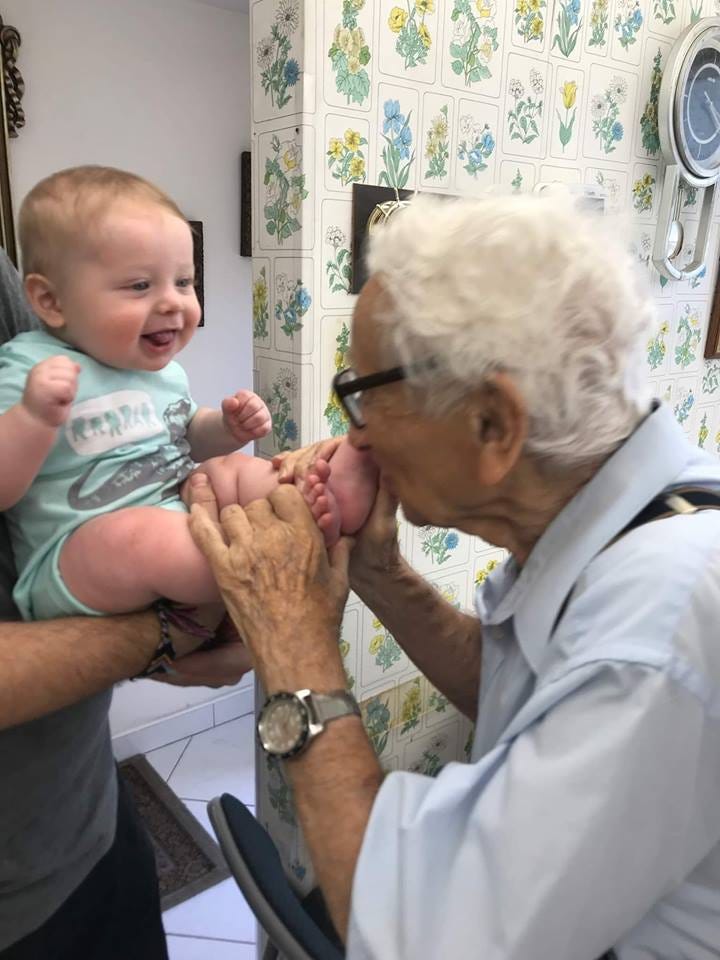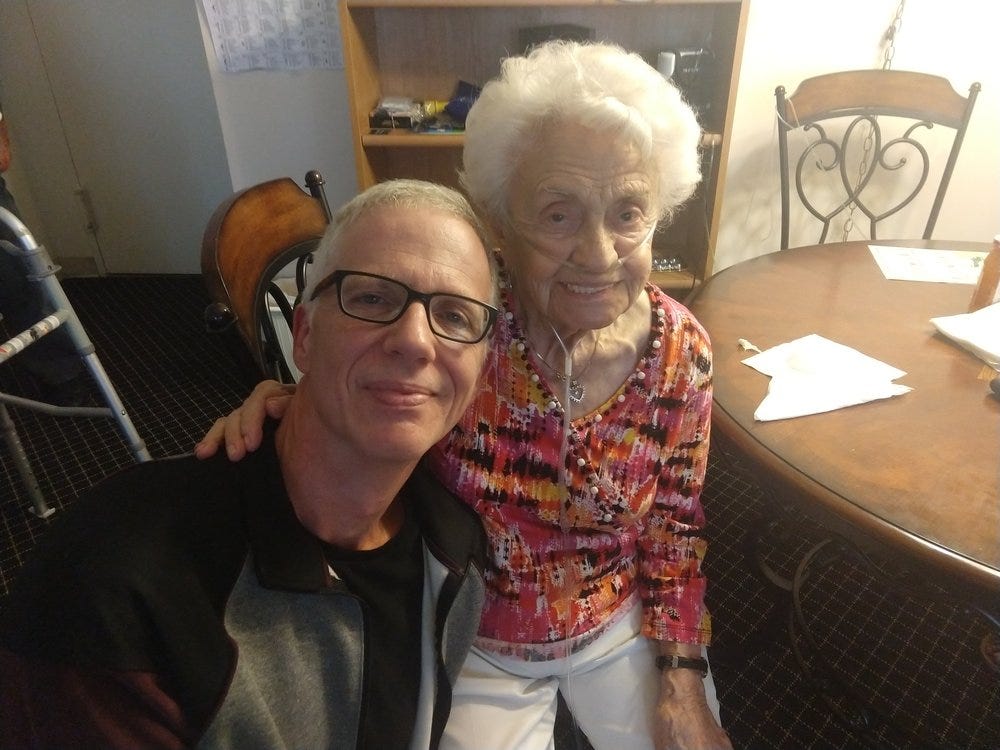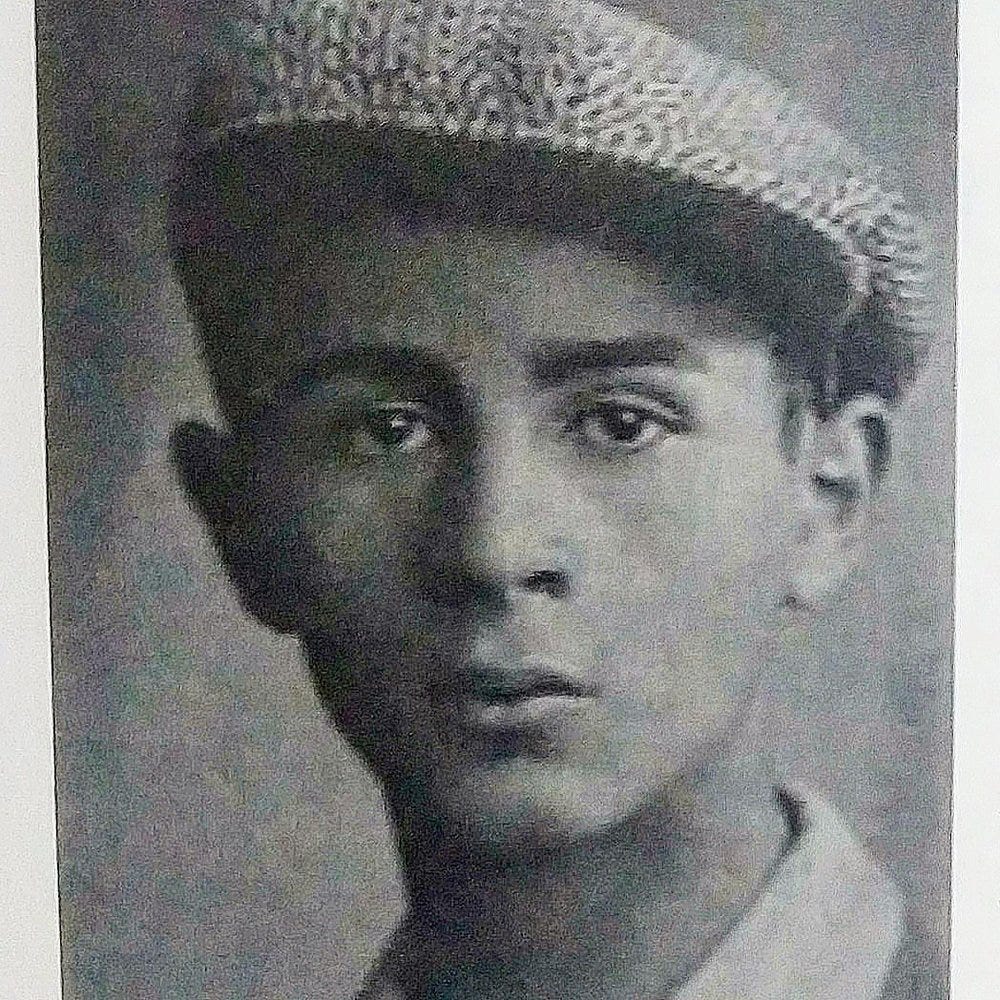Never Forget: Meet Benny and Bella Schepsman, Holocaust Survivors
This Jewish couple needs to keep telling their story.
In our travels, Brent and I have met many interesting people. This week, we met Bella and Benny Schepsman, ages 96 and 95.
They’re both Holocaust survivors.
“My brother Jacob and I were captured by the Germans along with other Jews,” Benny told me at one point. “Then they divided us into two groups. Jacob wound up with the group put on a cattle car and sent to Treblinka where he was gassed. Why him and not me?”
It was difficult to hear these horrible things, but it was obviously far more difficult to live them, and to have the courage to retell them even decades later.
But Bella and Benny are determined that all of the stories of their abuse at the hands of Nazi Germany be told. They don’t want the world to forget the 11 million people who died in concentration and extermination camps, nor the tens of millions more who died in the war.
Which was how I found myself in their apartment in Long Beach, New York, near where I had been visiting my friends Ellen Zwalsky and Marty Schepsman, their daughter-in-law and son.
For an hour, Benny and Bella recounted the bigotry they encountered, the beatings and illnesses they endured, the starvation they suffered, the years of slave labor making clothes and munitions for the Germans, the terrifying times they came dangerously close to being “liquidated,” and how much they missed their murdered family members.
“They took my sister and her newborn baby, our family’s first grandchild, away and murdered them,” Bella told me with tears in her eyes.
At the end of my visit, Benny looked me in the eye and asked “What is your interest in my story?”
When I later repeated my long-winded answer to Marty, he replied, “What you basically said is ‘never forget.' You don’t want people to forget injustice.”
He was absolutely right. I’d heard Holocaust stories before, studied the horror in school. I’d visited the Holocaust Museum, seen Schindler’s List, and read The Diary of Anne Frank.
But hearing these barbaric stories directly is different. It’s one degree of separation. Now I will truly Never Forget. This article is two degrees of separation, and maybe it will help others Never Forget too.
Benny and Bella both told me something else that has stuck with me: “The world knew and looked away.”
I think that’s an important part of Never Forget, something these survivors of the Holocaust really want us to know.
Here is more of Benny and Bella’s story of how they managed to survive.
Both Benny and Bella were from Poland, and were teenagers when the Nazis invaded. Benny came from a very poor family in Radom, Poland, and barely had enough food to survive, while Bella came from a middle-class family. But to the Germans and their fellow Poles, who mostly turned their backs on them, they were just “dirty Jews.”
When the Germans invaded Radom in 1939, the population was 95,000, including 35,000 Jews. By 1942, 32,000 Jews had been sent to Treblinka and murdered. That included all of Benny’s family, including his mother, sister, and her small two children who were taken into a field and shot — or “liquidated” — by the Germans. Two weeks later, Benny’s father suffered the same fate.
Nineteen-year old Benny was the last survivor of his family as he was forced to become a slave for the Germans.
Bella was from a middle-class family in Stopnica, Poland. She and her sisters were captured by the Germans in 1940. Not long after, Bella and her sisters Adele and Sara were forced into slave labor making munitions for the German Army. During their time as slaves, the Germans regularly took the ill prisoners, as well as others at random, and murdered them. One day, one of Bella’s younger friends was chosen just because she was in the wrong place at the wrong time. Bella could do nothing as her friend was lined up in front of an open pit.
A soldier said, “Why should we waste ammunition on you dogs?” and pushed Bella’s friend and the others into the pit, and buried them in dirt while they were still alive.

Afterward, everyone in the camps listened to the screams of the dying.
Over the following years, Benny and Bella survived countless horrors and deprivations. Time and again, they escaped being selected for “liquidation” by the Germans.
At one point, Benny was sentenced to 150 lashes, which nearly killed him. So much blood collected in his buttocks from the beating that a doctor had to make five incisions to let the blood drain down Benny’s leg and onto the floor. He received almost no other medial attention for his injuries, which became infected and constantly drained pus. Forced to trade what little food he had for a bandage, Benny nearly died from his injuries.
As the war drew to a close, the Germans forced their emaciated prisoners on death marches to try and keep them away from the Allies. When Benny was finally liberated by the Americans in 1945, he weighed 60 pounds, and it would take him months to recover from his physical injuries. Bella and her sisters were forced onto a similar march to Dachau in Germany, the purpose of which was to march them to death.
To make matters worse, Bella fell ill with typhus, which caused her glands in her neck to swell to the size of tennis balls. To save her life, a doctor cut slits in her neck, draining the pus into buckets. The typhus left Bella so incapacitated that she couldn’t walk. To keep her from being shot by the Germans, her sisters carried the rest of the way to Dachau, where they were to be murdered. But when they arrived at the camp, they discovered the war had ended and Dachau was liberated. Bella, comatose and near death, was sent to a hospital to recover, which was where she met Benny.
Benny was the only survivor from his family, while all that remained of Bella’s family was Bella and her two sisters. Benny and Bella were married on May 3, 1948, and a month later they were on their way to America. The early years there were a struggle but both were determined and hard workers, and eventually they established their own clothing business, and started a family that today stretches over four generations.
It was a pleasure and an honor to meet them both. I will carry their words and stories forward.
I will do my part to make sure we all Never Forget.
Note: Since this interview was originally published, both Benny and Bella have passed. Which makes me it even more important to tell their story.
Michael Jensen is a novelist and editor. For more about Michael, visit him at MichaelJensen.com.




